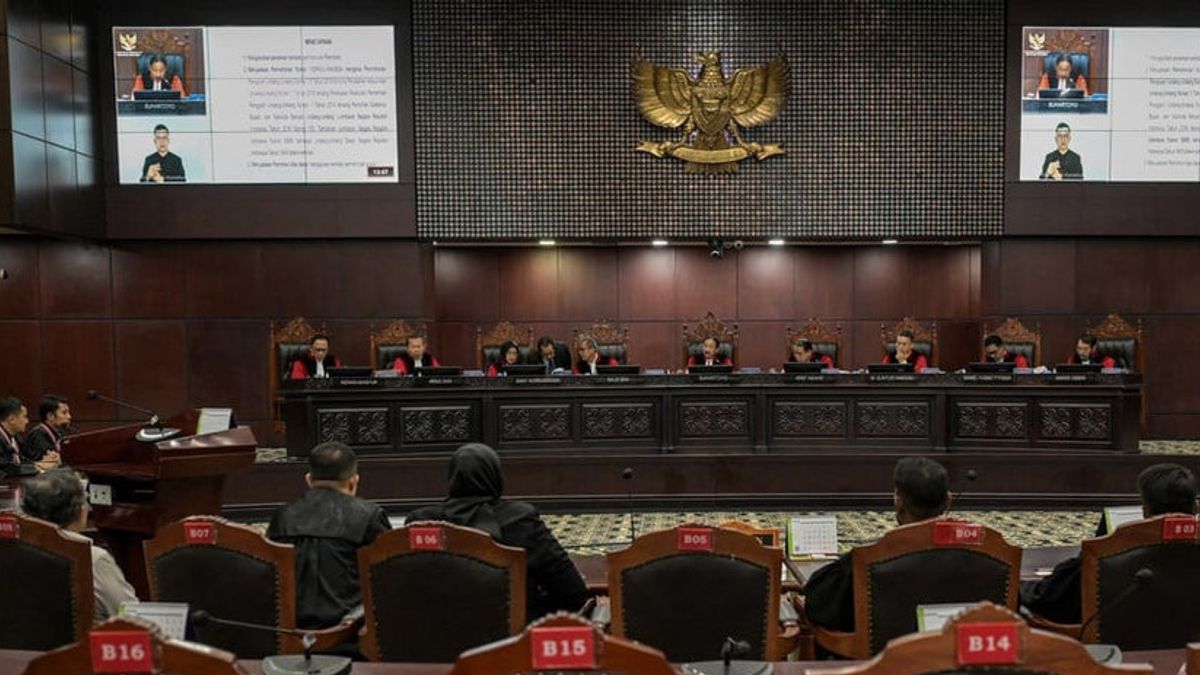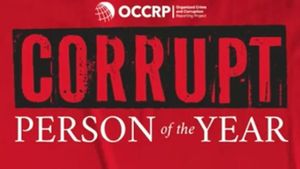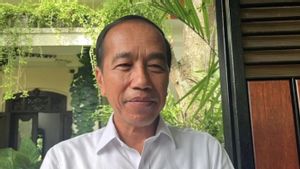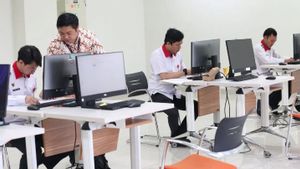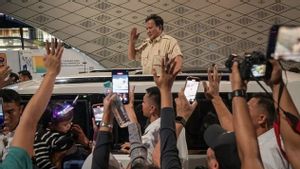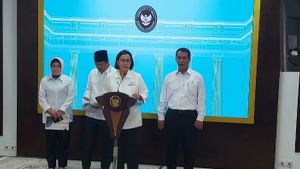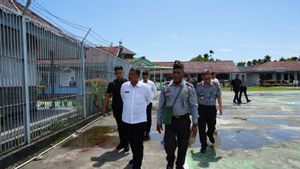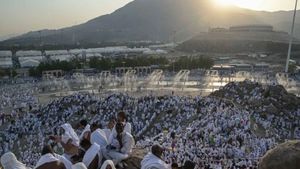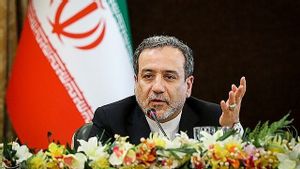JAKARTA Elimination of the presidential threshold or presidential nomination threshold of 20 percent by the Constitutional Court (MK) invites various reactions. Praise certainly comes from small and new political parties, therefore increasing their hopes of carrying out their own presidential and vice presidential candidates, without the need to join major political parties.
The request for a change in the threshold for presidential candidacy was submitted by four students of UIN Sunan Kalijaga, Yogyakarta. They are Enika Maya Oktavia, Rizki Maulana Syafei, Faisal Nasirul Haq, and Tsalis Khoirul Fatna, by submitting the argument that Article 222 of Law Number 7 of 2017 concerning Elections limits the rights of voters and small parties. The Court won their demands on January 2, 2025.
"Actually, if we can be honest, no one expects the request to be granted. We are quite happy and appreciate the Constitutional Court," said Enika, a 23-year-old student as quoted by BBC Indonesia.
The presidential threshold has experienced 32 re-review applications to be abolished, but only in the 33rd request was granted by the Constitutional Court.
"The Court understands that this threshold benefits big political parties, or at least contestants who have seats in the DPR," said Saldi Isra, Judge of the Constitutional Court when delivering the verdict.
Saldi also added that in previous elections, major political parties dominated nominations. This condition limits the right of voters to nominate alternative candidates.
Initially, the presidential nomination threshold was set only 15 percent ahead of the 2004 elections. However, it was later increased to 20 percent ahead of the 2009 elections, citing the simplification of the number of presidential candidates.
The decision continues to be opposed, citing castration of voting rights, suppressing opportunities, and benefiting major political parties. A decision that is considered unfair. The 20 percent threshold is still in effect in the 2024 General Election, which won the Prabowo Subianto-Gibran Rakabuming Raka pair as President and Vice President of the Republic of Indonesia in just one round.
"This is really a victory for the Indonesian people because there will most likely be more presidential candidates," said Hadar Nafis Gumay, former Commissioner of the Indonesian General Elections Commission (KPU) 2012-2017, quoted by The Strait Times.
Several Indonesian political observers enthusiastically welcomed the change. The Constitutional Court's decision on January 2 is believed to be changing the political landscape of Indonesia, because the presidential election is likely not to take place in just one round.
The presidential election will continue to the second round, if there are no candidates who reach 50 percent of voters. Then in the second round, two candidates will be shown who won the most votes, to compete in the final party.
The Constitutional Court's decision on January 2 has removed the exclusive rights of major political parties to nominate a president.
"This creates equality for all political parties," said Titi Anggraini, a member of the Board of Trustees of the Association for Elections and Democracy (Perludem).
In the last 15 years, only a handful of political parties have dominated the presidential election. Small political parties seem marginalized, and only relax the will of major political parties because there is a limit on the minimum number of votes in parliament.
The President of the Labor Party, Said Iqbal, said that the Constitutional Court's decision was a "healthy revival of democracy".
"In the 2029 election, the Labor Party can nominate its own presidential candidate without having to form a coalition with other political parties," said Iqbal, regarding the chances of his party being founded in 2021, and currently having no seats in the DPR.
Female activists also hope that the amendment to the law will widen the chances of women advancing to the presidential election.
So, will the 2029 election have many candidates as presidential and vice presidential candidates? The answer, no!
Even though the government through the Coordinating Minister for Law, Human Rights, Immigration, and Corrections, Yusril Ihza Mahendra respects the Constitutional Court's decision, restrictions will still be carried out.
"If changes and additional norms are needed in the Election Law due to the abolition of the presidential threshold, then the government will certainly work together with the DPR," said Yusril in a written statement.
On a separate occasion, the Minister of Law, Supratman Andi Agtas said that the government would cooperate with the DPR and election organizers to form a "constitutional engineering". This was done in order to comply with the Constitutional Court guidelines which stated that there were not too many presidential and vice presidential candidates during the 2029 election, even though the presidential nomination threshold had been removed.
In addition to deciding the abolition of the presidential threshold, the Constitutional Court also provides guidelines for legislators to conduct consolidational engineering, constitutional engineering to prevent the emergence of too many presidential and vice presidential candidates.
"The MK is of the view that many presidential candidates do not guarantee the democratization process guaranteed by the constitution," said Supratman.
The Constitutional Court issued five guidelines for constitutional engineering. First, all political parties participating in the election have the right to propose presidential and vice presidential candidates.
Second, the proposal for presidential and vice presidential candidates by political parties or coalitions of political parties participating in the election is not based on the percentage of seats in the DPR or the acquisition of valid votes nationally.
SEE ALSO:
Third, in proposing presidential and vice presidential candidates, political parties participating in the election can join. However, with a note, the combination of political parties does not cause dominance that has an impact on the limitations of presidential and vice presidential candidates and limits voters.
Fourth, political parties participating in the election who do not propose presidential and vice presidential candidates will be subject to a ban on participating in the next period of elections.
Fifth, the constitutional engineering company in question includes changes to the Election Law, and must involve the participation of all parties who have attention to holding elections. Political parties that do not have seats in the DPR must be involved, as a manifestation of the principle of meaningful public participation.
The problem faced after the Constitutional Court's decision was to keep the implementation on the ground from turning around. The established political party still has the potential to influence small political parties experiencing resource constraints.
It is feared that the power of resources from major political parties will co-opt the government party. In the aftermath, the space for political diversity and candidates remains narrow, causing large political parties to still profit a lot.
The English, Chinese, Japanese, Arabic, and French versions are automatically generated by the AI. So there may still be inaccuracies in translating, please always see Indonesian as our main language. (system supported by DigitalSiber.id)
